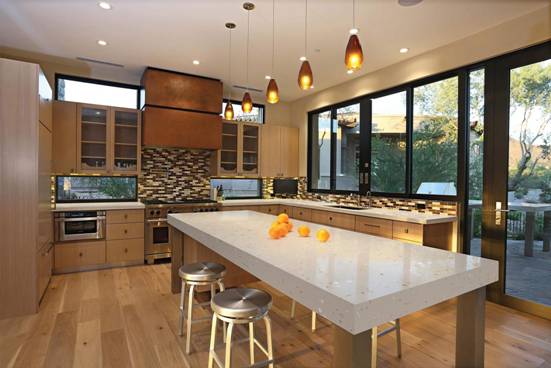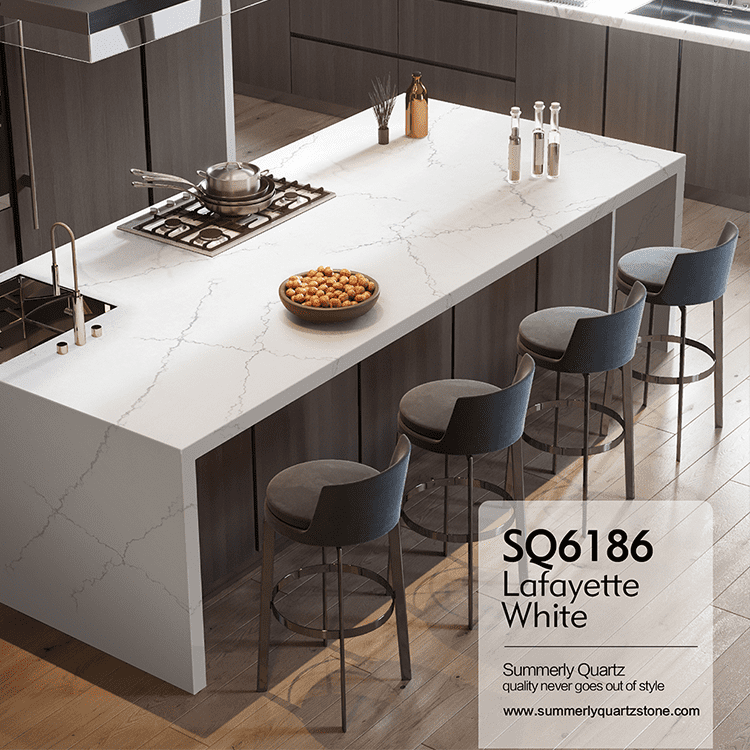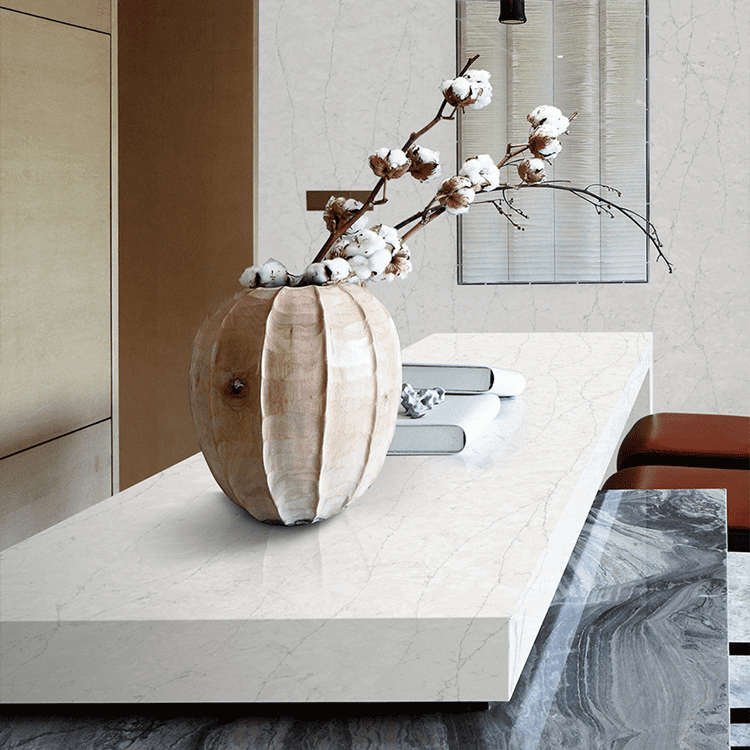
Quartz countertops are renowned for their durability, low maintenance, and stunning aesthetic appeal. As one of the most popular materials for kitchen and bathroom surfaces, quartz offers a perfect balance between function and beauty. However, not all quartz countertops are created equal, and one of the most critical factors influencing their performance is thickness.
So, how does the thickness of quartz affect its durability and longevity? Let's dive into the details.
Quartz countertops are typically available in a variety of thicknesses, with the most common options being 1 cm (approximately 0.39 inches), 2 cm (0.79 inches), and 3 cm (1.18 inches). These slabs consist of engineered quartz, which combines natural quartz minerals with resins and pigments to create a highly durable and non-porous material.
| Thickness | Features | Typical Applications |
| 1 cm (0.39 inches) | Lightweight, cost-effective, requires additional support | Wall cladding, artificial stones for decoration, backsplashes, vertical surfaces |
| 2 cm (0.79 inches) | Moderate durability, commonly used with backing support | Custom cut quartz countertops, bathroom vanities, low-traffic kitchen countertops |
| 3 cm (1.18 inches) |
High durability, strong structural integrity, no additional support needed |
Artificial stone kitchen countertops, kitchen islands, bar tops, high-traffic areas |
The thicker the slab, the more robust the countertop becomes. In practical terms, thickness influences a variety of aspects, from structural integrity to resistance against wear and tear. While thinner slabs may be tempting due to their lower cost, thicker slabs offer undeniable advantages in terms of durability and longevity. Each thickness has its advantages, and selecting the right one depends on factors like budget, application, and expected usage.
Quartz is one of the hardest materials on earth, ranking just below diamond on the Mohs hardness scale. However, the thickness of a quartz countertop plays a crucial role in determining its overall durability.
Increased Resistance to Impact: A thicker quartz slab can absorb and distribute impacts more effectively than a thinner slab. For instance, if a heavy object falls on the countertop, a 3 cm quartz slab is far less likely to crack or chip compared to a 1 cm or 2 cm slab. This makes thicker quartz an ideal choice for kitchens and bathrooms, where heavy pots, pans, or grooming tools could potentially damage the surface.
Strength in High-Traffic Areas: High-traffic areas, such as kitchen islands or bar countertops, are subject to more frequent use. Thicker quartz can withstand the constant pressure of daily activities, from chopping vegetables to placing hot cookware on the surface. As a result, thicker slabs are often the preferred choice in commercial kitchens, restaurants, or homes with large families that demand more from their countertops.
Better Resistance to Heat and Staining: Although quartz is engineered to be heat-resistant, its resistance to high temperatures improves with thickness. Thicker quartz countertops can handle higher levels of heat without damage. While it’s always recommended to use trivets and hot pads to protect quartz from direct exposure to heat, thicker quartz is less likely to suffer from thermal shock, which can cause discoloration or cracking.
Additionally, quartz is non-porous, meaning it’s highly resistant to stains from spills like wine, coffee, or oils. A thicker slab has more material density, which helps maintain its non-porous quality over time and reduces the likelihood of deep stains penetrating the surface.

Durability and longevity often go hand-in-hand. The thicker the quartz, the longer it tends to last, even under the most demanding conditions. Here’s why:
Less Susceptible to Wear and Tear: Thicker quartz countertops are more resistant to scratches, chips, and cracks. The increased thickness provides more material for the countertop to withstand physical damage, ensuring that even after years of use, the surface remains smooth and intact. This is particularly important for kitchen countertops that face constant knife marks, heavy appliances, and regular spills.
Structural Integrity: A thicker slab not only increases the strength of the surface but also enhances its structural integrity. Thinner quartz countertops may require additional support to prevent sagging or breaking over time, especially when installed in large areas or with extended overhangs, such as bar tops or kitchen islands. By contrast, 3 cm quartz slabs can often be installed without extra support, making them less prone to long-term issues like warping or bending.
Lower Maintenance Over Time: Thicker quartz countertops are less likely to require repairs or maintenance compared to thinner slabs. Chips, cracks, and structural damage are far less frequent, reducing the likelihood of having to call in a professional for costly repairs. This makes thicker quartz a smart investment for homeowners who want to enjoy a beautiful, low-maintenance surface that stands the test of time. Investing in high-quality quartz from trusted quartz slab manufacturers ensures longevity and a hassle-free experience.
While thicker quartz offers increased durability and longevity, it's also more expensive. Thinner slabs (such as 1 cm or 2 cm quartz) are often more affordable and may seem like an attractive option for those on a budget. However, the long-term costs of repairing or replacing a thinner countertop due to cracks, chips, or sagging can outweigh the initial savings.
In addition, thinner quartz slabs may require plywood or metal backing for structural support, which can add to the installation cost. In comparison, a 3 cm slab, though initially more expensive, typically does not need any added support, which could balance out the overall installation costs.
Though thicker quartz is generally more durable, there are situations where thinner quartz slabs can be appropriate. For example, in low-traffic areas like bathroom vanities, wall cladding, or decorative spaces, a 1 cm or 2 cm quartz slab can provide an elegant and cost-effective solution without compromising on style. Additionally, thinner slabs are lighter, making them easier to install in spaces where weight is a concern.

The thickness of quartz plays a critical role in determining its durability and longevity. Thicker slabs, such as 3 cm quartz, offer superior resistance to impact, heat, and wear, making them ideal for high-traffic areas like kitchens and bathrooms. While thinner quartz countertops may be more budget-friendly, they lack the long-term resilience and strength of thicker options.
Ultimately, investing in a thicker quartz countertop can result in a more durable, low-maintenance surface that will last for decades, enhancing both the aesthetic appeal and functionality of your home.
As a leading quartz slabs factory, we offer quartz slabs customized to meet your specific design needs. Contact us today to explore our wide range of options and get expert advice on choosing the right quartz thickness for your project.